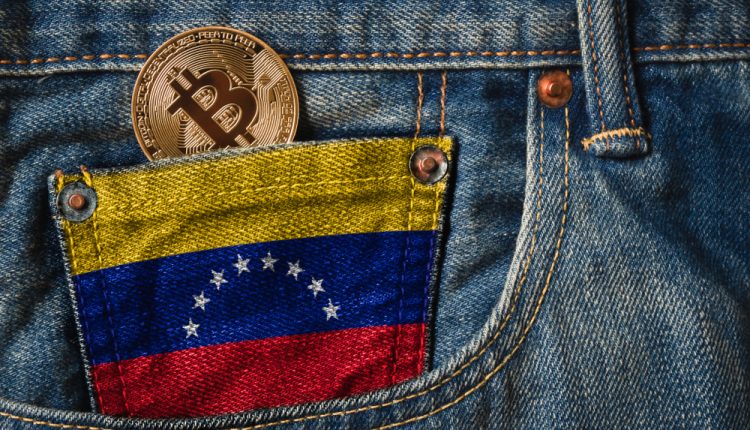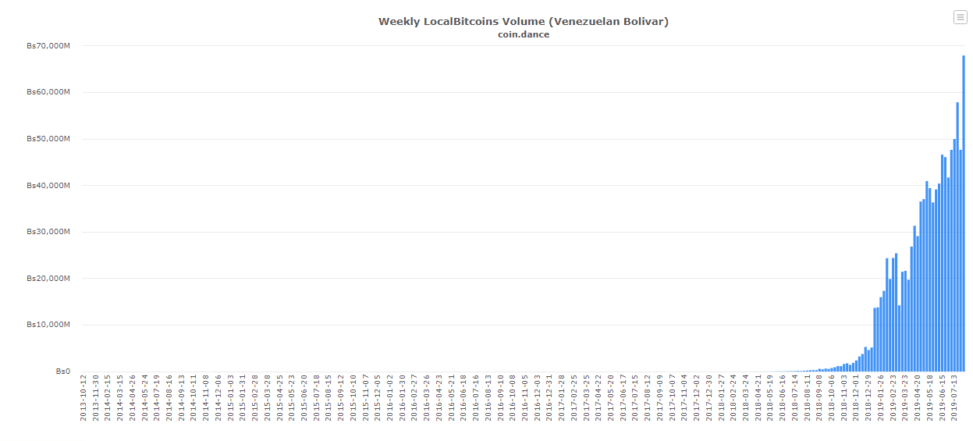This is What Happened in Venezuela with Bitcoin Transactions after US Blockade


Orinoco Tribune – News and opinion pieces about Venezuela and beyond
From Venezuela and made by Venezuelan Chavistas

After the president of the United States, Donald Trump, signed an executive order to arbitrarily freeze all Venezuelan assets in US territory, a historical record of Bitcoin transactions has been seen in Venezuela.
The statistics firm Coin Dance, that monitors local transactions using the “Local Bitcoin” P2P platform, said that on Tuesday around 68 million transactions were registered in Bitcoin in Venezuelan currency (the Bolivar). To have an idea of the increase, in the past month of January, the average number of transactions in that cryptocurrency was 20 million: already in May they had doubled to 40 million, with important peaks such as that of last July 20, that day, Coin Dance recorded 57 million 800 thousand transactions, published the outlet ALavio.
RELATED CONTENT: Iran Announces New Rules to Regulate Cryptocurrency Market

An unilateral and coercive measure against the assets of Venezuela is applied to “all property and interests owned by the government of Venezuela that are in the US, or that are under the power or control of any person in the United States connected directly or indirectly with the Venezuelan government.”
RELATED CONTENT: PETRO, a Case for Social Welfare
Bitcoin, launched in January 2009, is an electronic currency without intermediaries where transactions are made directly from person to person. This currency is decentralized: it does not have a central issuer (states, bank, company or financial institution), being produced by people and companies around the world that are engaged in mining, dealing on trading operations or just using it as a reserve of value.
The benefits of this cryptocurrency are based on the blockchain technology. It is an account book in which the records (the blocks) are linked and encrypted for the purpose of protecting the security and privacy of the transactions and are being held in millions of processing devices all over the world.
Translated and edited by JRE/EF
Support Orinoco Tribune team’s unique, amazing, and unmatched work!
5.5 years providing honest and responsible anti-imperialist information about the Global South!
66 months working for you, 18.5K posts published, 60 original pieces in the last 4 months, 21 YouTube interviews over the last 12 months, and much more to come!
Your donations make a big difference!
You must be logged in to post a comment.